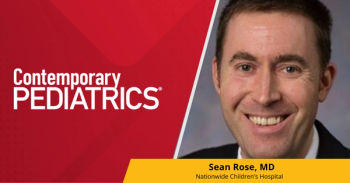
PNP Perspective: Focus on the positive outcomes of accepting vaccines
Donna Hallas, PhD, PPCNP-BC, CPNP, PMHS, FAANP, FAAN, shares her thoughts on how PNPs can implement evidence-based strategies to encourage parents to vaccinate their children.
Vaccines save lives! Vaccines administered to the pediatric populations have significantly reduced the incidence of infants, children, and adolescents acquiring vaccine-preventable diseases (VPDs). As we know, VPDs, when contracted, may result in long-term health consequences such as chronic illnesses, disabilities, and even death. For many years, we have all encountered vaccine-hesitant or vaccine-resistant parents in our practices. We have implemented various evidence-based strategies and conducted research studies to encourage parents to vaccinate their children, many of which were and remain successful.
Vaccine safety and effectiveness
Today, we must be aware of the current national discussions raising doubts about vaccine safety and effectiveness, and be prepared to talk with our parents and teens about the known safety and effectiveness of the Federal Drug Administration (FDA) approved vaccines, especially the COVID-19 vaccines. We are now encountering another COVID variant that will require a vaccine modification to prevent another COVID crisis.
Remove the negatives
We, as health care professionals, researchers, quality improvement specialists, and authors, must think about the recurring words in titles of scientific publications that may negatively influence policy makers, non-health care providers in elected positions, health care providers, and patients. For example, a Letter to the Editor was titled, “COVID-19 vaccine adverse events in a population aged 5-17 years: a study from the VAERS database.”1 Another example is a research study titled: “COVID-19 vaccination recommended for US children 5 to 11 years, despite adverse events.”2 I highlighted the words vaccine adverse events and despite adverse events as those phrases stand out as a negative idea….Our parents may ask: “Am I going to have an adverse event if I get the vaccine or have it administered to my child or teen?
The Letter to the Editor published in Annuals of Pediatrics1 only talked about adverse events using the Vaccine Adverse Events Reporting System’s (VAERS) database. Health care providers are required by law to report specific events if they occur after vaccination administration to the VAERS system.3 However, in addition to the reports to VAERS, there is a hypothesis testing system that can assess causality of symptoms in relation to vaccine administration, which is called the Vaccine Safety Datalink (VSD).3 The VSD is a collaboration between the CDC and 13 integrated health care systems linked to the Electronic Health Record (EHR), which can investigate VAERS reports from a scientific perspective.3
Positive outcomes
In 2022, Patel et al,4 reported the results of a retrospective cohort study in which children less than 21-years-old were hospitalized at their institution with one of 3 diagnoses: viral myocarditis from 2015 to 2019; Multisystem inflammatory Syndrome in Children (MIS-C) myocarditis, an identified complication for children who contracted COVID-19 disease before availability of any COVID-19 vaccine for children, from March 2020 to February 2021; and COVID-19 vaccine-related myocarditis from May 2021 to June 2021.4 Study results revealed that children with classic myocarditis had higher rates of persistent ventricular dysfunction at discharge as well as 3-months later on follow-up as compared to children with a diagnosis of MIS-C or vaccine-related myocarditis.4 Furthermore, the study results revealed that children with vaccine-related myocarditis had a mild case of myocarditis and, upon discharge, had a normal ventricular function recovery.4 This study revealed a positive outcome after children and adolescents had a diagnosis of myocarditis post-vaccination. This information is very important to relay to parents and teens who question taking the COVID-19 vaccine.
References:
1 .Villa-Zapata L, Gomez-Lumbreras A, Lee Y, Tan MS, Malone D. COVID-19 vaccine adverse events in a population aged 5-17 years: a study from the VAERS database. Accessed June 20, 2025. An Pediatr (Engl Ed). 2023;98(4):310-312. doi:10.1016/j.anpede.2022.10.011
2. Krewson C. COVID-19 vaccination recommended for US children 5 to 11 years, despite adverse events. Contemporary Pediatrics. August 1, 2022. Accessed June 20, 2025. https://www.contemporarypediatrics.com/ view/despite-mild-to-moderate-adverse-events-covid19-vaccination-recommended-in-united-states-childrenaged-5-to-11-years
3. American Academy of Pediatrics. [Understanding Vaccine Evaluation and Safety as an Approach to Addressing Parental Concerns]. In Kimberlin DW. Banerjee R, Barnett ED, Lynfield R, Sawyer MH, eds. Red Book. 2024-2027 Report of the Committee on Infectious Diseases. American Academy of Pediatrics; 2024; 27-32.
4. Patel T, Kelleman M, West Z, Peter A, Dove M, Butto A, Oster ME. Comparison of multisystem inflammatory syndrome in children – Related myocarditis, classic, viral myocarditis, and COVID-19 vaccine-related myocarditis in children. Journal of the American Heart Association. 2022;11(9). Accessed June 20, 2025.Published April 27, 2022.
Newsletter
Access practical, evidence-based guidance to support better care for our youngest patients. Join our email list for the latest clinical updates.






